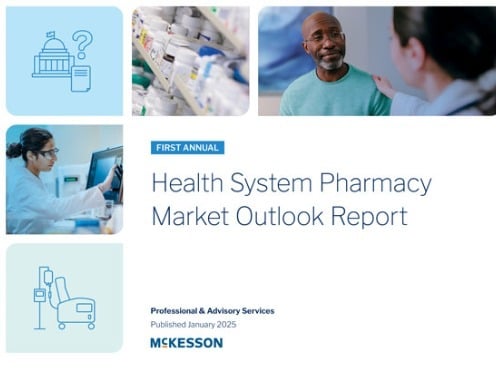
Prescribed Perspectives Industry News and Insights Center
Featured Insights
What's New

Expert Q&A on Challenges and Opportunities Health Systems Should Consider in Infusion
Subscribe Now
To learn how McKesson can help health systems achieve more, sign up to have the Prescribed Perspectives newsletter delivered directly to your inbox.
![System.Func`1[System.String]](/siteassets/images/z-mckesson-logosicons/health-systems2.png)





